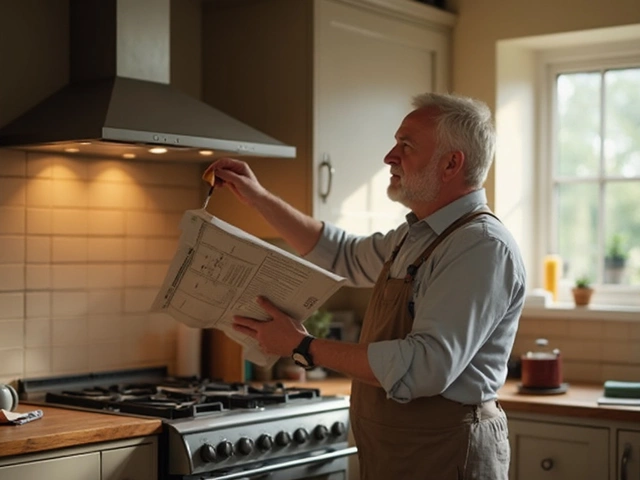If you’ve ever looked at your water heater and wondered about the anode rod, you’re not alone. The anode rod is the cheap metal stick that stops rust from eating your tank. When it’s time to replace it, the cost can feel like a surprise. Let’s break down what you’ll actually pay and how you can keep the price down.
First off, not every anode rod is the same. The material, size, and brand all play a part. Magnesium rods are the most common and usually the cheapest, often ranging from £15 to £30. Aluminum rods sit a bit higher, typically £20‑£40, while the premium zinc‑aluminum mix can cost £30‑£50 because it lasts longer in hard water.
The size of your water heater matters too. A 40‑gallon tank needs a longer rod than a small 30‑gallon unit, and longer rods naturally cost more. If you have a commercial‑size heater, expect prices to climb into the £70‑£100 range.
Labor is the other big piece of the puzzle. An experienced plumber can usually swap the rod in under an hour, and labor rates in the UK hover around £60‑£80 per hour. Some companies bundle the part and labour for a flat fee, which can be a good way to avoid hidden costs.
Location can affect price as well. If you live in a remote part of West Sussex or need an after‑hours call‑out, the total may jump a bit. Always ask for a breakdown before the job starts.
Don’t jump straight to a pricey service call. A lot of the work can be DIY if you’re comfortable with basic tools. You’ll need a socket wrench, a garden hose, and a bucket. Turn off the power or gas, drain a few gallons, and you can usually unscrew the old rod in 15‑20 minutes.
Buy the part yourself. Local DIY stores and online retailers list the same rods you’d get from a plumber, often at a discount. Check for bulk packs if you have multiple heaters; the per‑rod price drops noticeably.
Consider the water quality in your home. If you have soft water, a magnesium rod will last longer, so you might not need the premium zinc‑aluminum blend. On the other hand, hard water can eat away at magnesium quickly, making the more expensive rod a better long‑term investment.
Schedule the replacement before the rod is completely corroded. A half‑eaten rod is harder to remove and may require extra labour, which adds to the bill. A quick visual check every year helps you plan ahead and keep costs low.
Finally, get at least two quotes if you prefer to call a pro. Many local plumbers will give a free estimate over the phone, and a little price‑shopping can shave off £10‑£20.
Bottom line: you’re looking at roughly £30‑£70 for the part plus £60‑£80 for labour if you let a professional handle it. DIY can bring the total under £50. Knowing the material, size, and your water quality lets you pick the right rod without overpaying.
Keeping an eye on the anode rod not only saves cash, it adds years to your water heater’s life. A simple check and timely swap can prevent costly tank leaks down the road. So next time you hear that rumble from your heater, remember the tiny rod inside that does the big job – and how easy it is to keep it working without breaking the bank.

Replacing the anode rod in a water heater can extend its lifespan and prevent costly repairs. This article breaks down the cost of replacement, including materials and labor, and discusses why it's a crucial part of water heater maintenance. Discover how often anode rods should be checked and what signs indicate it's time for a replacement. Whether you DIY or hire a pro, understanding these factors can save you money and stress.

Extractor fan acting up? If you’re wondering who handles extractor fan replacement, this article breaks it down. Learn the difference between calling a pro and tackling it yourself, get tips on when to fix or swap out a fan, and find out what skills and tools make the job smooth. Real, practical advice from someone who's been around finicky fans and quick fixes. Don’t let poor ventilation keep bothering you—get the facts and decide what works best.

This article breaks down what an appliance standard really is and why it matters when you’re buying or servicing home appliances. You’ll learn about the rules that keep appliances safe and efficient, plus tips for spotting compliant models. It explains how standards affect your bills and the planet. Real-world examples make it clear and easy to understand. Use this guide to make smarter choices about your appliances.

Wondering if you should flush or just drain your water heater? This article breaks down the difference, when each method makes sense, and what actually helps your water heater last longer. You'll find practical advice, simple tips, and a few things even pros forget. Discover the truth about tank cleaning—without the jargon or confusion. Your next maintenance day just got a lot less stressful.

Flushing your water heater is an essential maintenance task that can extend its lifespan and improve efficiency. As water heaters age, sediment and minerals build up, potentially leading to costly repairs or irreparable damage. Learn how often you should flush a ten-year-old water heater and whether it's worth considering professional help. Discover practical tips and insights for maintaining this critical home appliance effectively.

Struggling with a troublesome boiler? Discover the most frequent issues like lack of heat, strange noises, and leaking water. Learn practical tips and tricks on how to diagnose and fix these problems on your own. Recognize when it's time to call a professional and keep your home warm and comfortable.